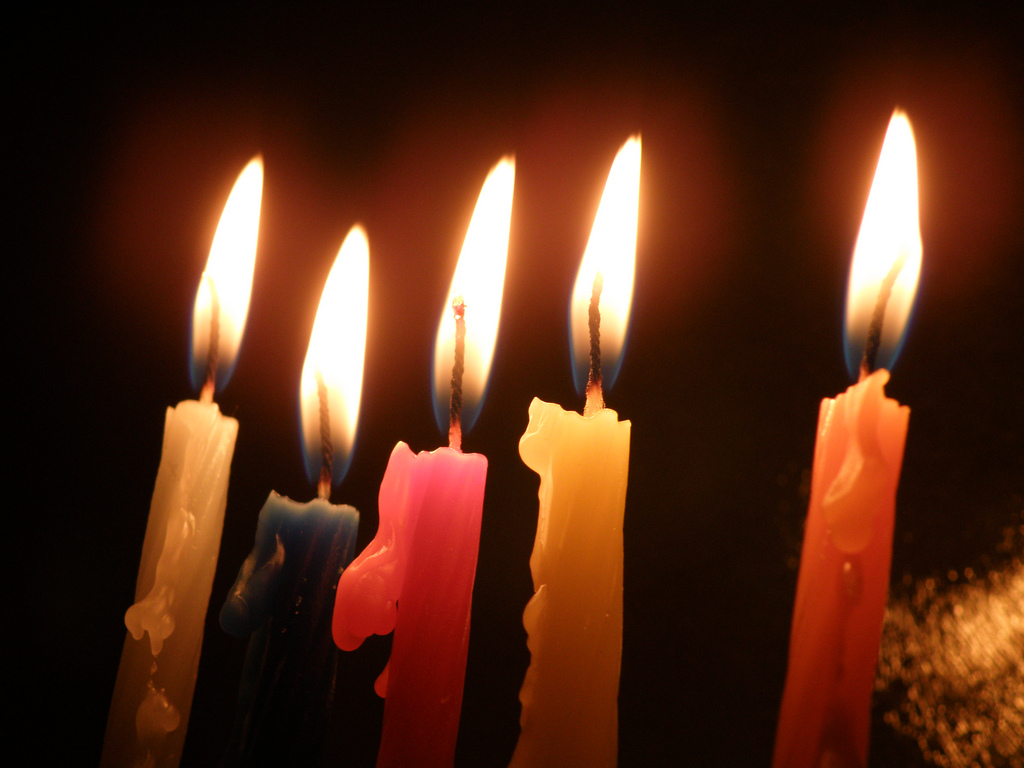Chanukah
The Talmud (Sanhedrin 42a) relates that “Rav Yochanan said ‘All who make the blessing on (the new moon for) the month in the proper time, it’s as if they have greeted the Divine Presence.”
Rabeinu Yona (on the Rif at the end of the 4th chapter of Brachos) offers an explanation of Rav Yochanan’s statement. He says that we know that G-d is not visible; our eyes cannot see any corporeal embodiment of G-d. However, we can “see” him by witnessing the wonders He creates and manifestations of His might.
The verse in Yeshaya (45:15) states, “Indeed, you are a G-d who conceals Himself, the G-d of Israel, the Savior.” This means that even though G-d is hidden from our eyes, as we cannot see him, He is still the G-d of Israel, for whom he performs countless wonders, and He is our Savior at all times. Through the acts of salvation performed for us, we, mankind, are able to “see” Hashem, He is revealed to us, and we are cognizant of his presence. Through the monthly cycle of the waxing and waning of the moon, we are able to catch a glimpse of the wondrous workings of G-d. As such, when we recognize this and bless G-d accordingly, it is as if we are greeting G-d Himself, as we are acknowledging His presence.
The Alter of Kelm elaborates on Rabeinu Yona’s message. Once a person becomes accustomed to certain behaviors or certain happenings, the person no longer becomes emotionally moved upon witnessing those behaviors or happenings. These matters fade into the background and become simply facts of life. The person no longer gives any thought as to how or why those events occurred, or who made them happen.
The sun, as we know, shines during the day. Its rise and set comes with regularity, day in and day out. As nightfall comes, the light of the sun fades and the moon takes its prominent place in the heavens above. The moon, unlike the sun, does not look the same two days running. The verse in Tehillim (104:19) says “He has made the moon for appointed times, the sun – he knows its coming.”
On this verse, the Talmud (Rosh HaShana 25a) says that “it is only the sun whose coming an ordinary person knows, but the moon – (as its time cycle varies) he does not know.” This aspect of change present in the moon counters the regularity we experience in everyday life. It causes a person to reflect on who placed the moon in the sky, who made the moon come and go in a cycle of change from night to night. The differing appearance of the moon gives us a glimpse of G-d by presenting us with a visible manifestation of His presence. Because, monthly, the change starts anew, we take the opportunity to recognize His presence, we bless Him accordingly and thereby greet G-d Himself.
The miracle of Chanukah encapsulates this duality of our recognition of G-d’s presence. In truth, the very fact that oil burns is miraculous in it of itself. We could easily say to ourselves that just as G-d said one day’s worth of oil should burn for one day, He could say that it should burn for 8 days.
The “miracle,” at its core, is essentially the same. However, the Alter says, familiarity and habit blind us. Those happenings, however miraculous, that occur on a daily basis, lose their emotional impact. We, over time, fail to recognize that nature is only nature because Hashem made it nature. The occurrence of the out of the ordinary event is what causes us to stand up and take notice. It has the effect of not only causing us to appreciate G-d’s hand in the outright miracle, but also enables us to appreciate the miraculous nature of nature. Seeing oil burn for seven days longer than it should not only brought about an appreciation for this apparent miracle, but for Hashem’s hand in everyday life as well.
The Bais Yosef asked a well known and oft-repeated question: If there was enough oil to last one day, why then do we celebrate Chanukah for 8 days – the first day was not a miracle! The Alter from Kelm says the answer, we now know, is readily apparent. Through the miracle that occurred for seven days, everyone was vividly reminded that it was Hashem who miraculously allowed oil to burn in the first place. Just as by the cycle of the moon we make a blessing upon encountering this realization, we do similarly by Chanukah.
On the first night of Chanukah, we acknowledge the miracles of Hashem inherent in nature. On the remaining nights, we acknowledge the supernatural miracles of Hashem. Chanukah is a holiday on which we have the opportunity to thank Hashem for all manifestations of His presence of our lives.
Text Copyright © 2005 by Rabbi Yehudah Prero and Torah.org.
The author has Rabbinic ordination from Mesivta Tifereth Jerusalem, NY.


